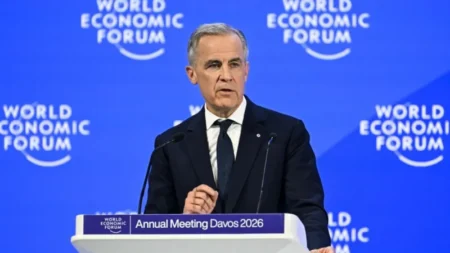The United States has decided to remove some of its staff from the Middle East because of growing tension with Iran. The move comes at a time when nuclear talks between the two countries are stuck, and fears of a military conflict are increasing.
President Donald Trump said U.S. personnel are being taken out of the region as a safety measure. The State Department updated its global travel warning, confirming that non-emergency staff have been ordered to leave due to security concerns. It also approved voluntary departure for family members of U.S. military staff in Bahrain and Kuwait.
Officials said the U.S. embassy in Baghdad will see a partial evacuation. They plan to use commercial flights, but the military is ready to assist if needed. The U.S. embassy in Kuwait remains fully operational, and there are no evacuation orders for Qatar. Military operations at Al Udeid Air Base in Qatar also continue as normal.
News of the evacuation caused oil prices to jump by more than 4 percent. Brent crude futures reached over $69 per barrel. The increase in oil prices reflects fears that conflict in the region could affect global supply. The United Kingdom also warned that increased military activity in the Gulf and nearby waters may threaten shipping routes.
Iran’s defense minister said that Iran would strike back if attacked. Meanwhile, Iran’s mission to the United Nations said the country is not seeking to build a nuclear weapon and that U.S. military pressure increases instability in the region.
The U.S. has a strong military presence across the Middle East, including bases in Iraq, Bahrain, Kuwait, Qatar, and the UAE. Most of the family members now allowed to leave are based in Bahrain. Iraq’s government has not reported any serious threats that would require an evacuation. However, since the Gaza war began in October 2023, Iran-backed groups in Iraq have attacked U.S. forces several times, though these attacks have reduced in recent months.
Tensions are also rising due to actions by Israel. U.S. intelligence believes Israel may be preparing a strike on Iran’s nuclear sites. Last year, Israel and Iran exchanged direct missile and drone attacks, which crossed over Iraqi airspace. Israel has also launched strikes against Iran-linked groups in Iraq and Syria.
In response to rising threats, the U.S. has recently sent more military forces to the region. This included B-2 bombers and a second aircraft carrier, though both have since left. A new round of nuclear talks is expected soon. Iran will respond to a recent U.S. offer it had earlier rejected.
A senior Iranian official said the U.S. often uses the threat of military action during talks. U.S. General Michael Erik Kurilla, head of Central Command, said he had given the president different military options to prevent Iran from gaining nuclear weapons. He has delayed a planned testimony before Congress because of the current crisis.
This latest move by the United States shows the seriousness of the situation. With military forces on alert and oil markets reacting, the risk of conflict remains high. Both countries say they do not want war, but without progress in talks, tensions could grow even more in the coming days.







